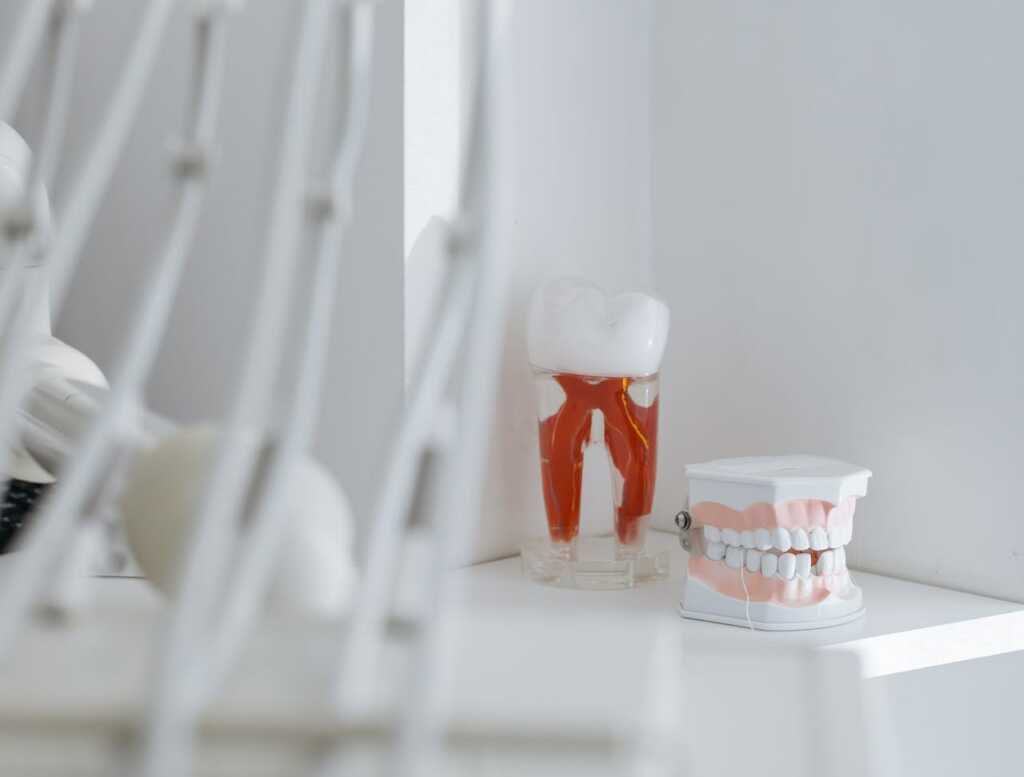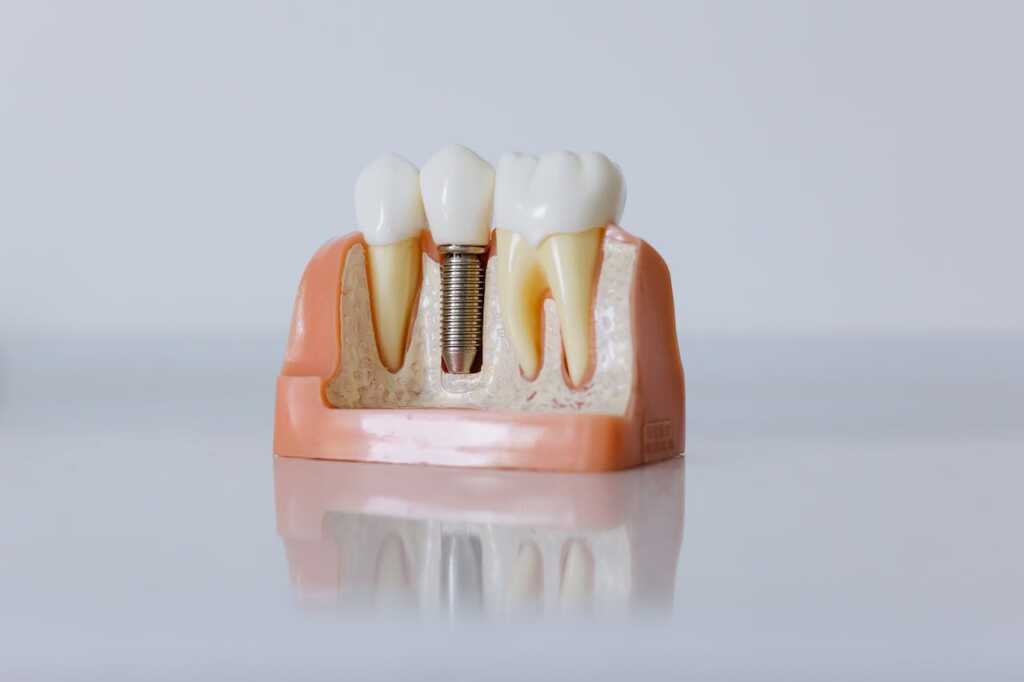
When it comes to dental restorations, implants stand out as a pinnacle of modern dentistry, offering a blend of function and aesthetics that closely mimic natural teeth. Patients often inquire about the lifespan of dental implants, and the answer is multifaceted, hinging on cutting-edge dental practices, diligent oral hygiene, and individual lifestyle choices.
Introduction to Dental Implant Durability
Dental implants are a testament to the evolution of dental care, designed to integrate seamlessly with the jawbone, a process known as osseointegration. This integration is critical to the implant’s durability and is a feature that sets it apart from other dental prosthetics.
The Basics of Dental Implants
A dental implant is essentially a titanium post that is surgically placed into the jawbone, acting as a substitute for a tooth root. Titanium’s biocompatibility allows for bone growth around the implant, creating a stable base for the crown, and preserving jawbone integrity — all contributing to the longevity of the implant.
The Evolution of Implant Technology
Advancements in implant technology have been substantial, with modern implants boasting high success rates and potential lifelong stability. The longevity of dental implants is a result of both the innovative technology and the aftercare they receive.
For those exploring dental restoration options, Schindler Smile Studio offers top-tier dental implants in Columbus, OH. Their expertise in implant technology is matched by a commitment to personalized patient care, ensuring that each implant is a testament to durability and quality.
The Anatomy of a Dental Implant
Delving into the anatomy of a dental implant helps us understand what makes it so durable. An implant is composed of three main parts: the post, the abutment, and the crown, each contributing to the overall function and lifespan of the implant.
The Implant Post: Titanium and Bone Integration
The implant post is the foundation of the implant, deeply rooted in the jawbone. Its success hinges on the ability of the titanium to integrate with the bone, a critical factor that determines the implant’s stability and longevity.
The Abutment: Connecting the Pieces
The abutment is the intermediary between the post and the crown, ensuring the crown is securely attached to the implant. This piece is vital for the structural integrity of the implant and plays a significant role in its long-term success.
The Crown: The Visible Tooth Replacement
The crown, the visible part of the implant, is crafted to replicate the look and function of a natural tooth. While the underlying titanium post and abutment are meant to last a lifetime, the crown may require replacement due to wear over time.

Factors Influencing Implant Lifespan
The lifespan of dental implants can be influenced by a myriad of factors, ranging from oral hygiene practices to the patient’s overall health. Understanding these factors is crucial for anyone considering implants as a long-term solution for tooth loss.
The Role of Oral Hygiene in Implant Longevity
Just like natural teeth, dental implants require consistent and thorough oral hygiene. The longevity of an implant can be significantly extended through regular brushing, flossing, and professional dental cleanings. Neglect in this area can lead to peri-implantitis, a destructive inflammatory process affecting the soft and hard tissues surrounding implants, which can result in implant failure.
The Impact of Lifestyle Choices on Implants
Lifestyle choices such as smoking or excessive alcohol consumption can impair the healing process and negatively affect the durability of dental implants. Smoking, in particular, is a well-documented risk factor for implant failure due to its impact on blood flow and healing capacity.
Medical Conditions and Implant Success Rates
Systemic health conditions like diabetes or osteoporosis can also impact the success rate of dental implants. These conditions can affect bone density and the body’s ability to heal, which are critical factors in the osseointegration process.
Comparing Implants with Other Tooth-Replacement Options
When considering tooth replacement, it’s important to compare the long-term benefits and potential drawbacks of different options. Dental implants are often favored for their durability and function, but how do they stack up against alternatives like dentures and bridges?
Implants vs. Dentures: A Durability Comparison
Dentures, while a more cost-effective solution, lack the stability and permanence of dental implants. They can lead to bone loss over time and require adjustments and replacements more frequently.
Implants vs. Bridges: Long-Term Benefits
Bridges can be a viable option for some, but they typically have a shorter lifespan than implants and can affect adjacent healthy teeth. Dental implants, on the other hand, stand alone without impacting other teeth and can last a lifetime with proper care.
Potential Complications and Solutions
While dental implants have a high success rate, they are not immune to complications. However, with prompt attention and proper management, these issues can often be resolved without long-term detriment to the implant.
Recognizing and Addressing Implant Failure
Early signs of implant failure might include discomfort, mobility, or infection. If these symptoms occur, it’s imperative to seek immediate dental advice. Often, early intervention can prevent further complications and preserve the implant.
Maintenance Tips for Prolonging Implant Life
Regular dental check-ups are essential for monitoring the health of dental implants. During these visits, dentists can identify and address potential issues before they become serious problems. Additionally, patients should avoid chewing hard items that could damage the crown and maintain a diet that supports overall dental health.
Making the Decision for Dental Implants
Choosing dental implants is a significant decision that should be made with careful consideration and professional guidance. It’s not just about replacing a missing tooth; it’s about investing in a solution that will affect one’s quality of life and oral health for many years to come.
Consultation with a Specialist: What to Expect
When considering dental implants, the first step is a thorough consultation with a dental specialist. This meeting will assess the patient’s oral health, bone density, and suitability for implants. It’s also an opportunity to discuss expectations, potential risks, and the overall treatment plan.
The Investment in Your Smile: Cost vs. Value
While the upfront cost of dental implants may be higher than other options, the long-term value they provide in terms of durability, functionality, and appearance can make them a wise investment. Unlike other tooth-replacement options, implants can last a lifetime with proper care, potentially saving patients from future dental work and expenses.
In conclusion, dental implants represent a significant advancement in restorative dentistry, offering a long-term solution for tooth loss. Their success and longevity are influenced by a combination of patient-specific factors and the quality of care provided by dental professionals. For those in Columbus, OH, seeking a reliable and lasting solution, dental implants present an excellent option worth considering.





